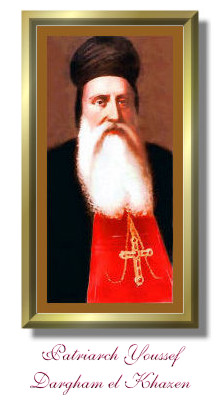 BEIRUT – Former Lebanese minister Bassel Fleihan died on Monday in a French hospital from wounds sustained in the February blast that killed ex-premier Rafiq Hariri in Beirut, the Hariri TV television station said. Fleihan, 42, died in a military hospital near Paris where he had been taken with serious burns immediately after the February 14 bombing in Beirut, the television reported before interrupting programs to play classical music.His death brings the toll from the blast to 20, including Hariri.A tent had been set up on Beirut
BEIRUT – Former Lebanese minister Bassel Fleihan died on Monday in a French hospital from wounds sustained in the February blast that killed ex-premier Rafiq Hariri in Beirut, the Hariri TV television station said. Fleihan, 42, died in a military hospital near Paris where he had been taken with serious burns immediately after the February 14 bombing in Beirut, the television reported before interrupting programs to play classical music.His death brings the toll from the blast to 20, including Hariri.A tent had been set up on Beirut

Upon this, the Ottoman Fleet arrived to Beirut in September 10, 1840 and then sailed to Cyprus where Cheikh Francis was hiding.
 Najib Mikati, a pro-Syrian, chosen with opposition support. BEIRUT, Lebanon (CNN) — Pro-Syrian Lebanese President Emile Lahoud has named former government minister Najib Mikati as prime minister-designate.Mikati, also pro-Syrian, has garnered the support of the anti-Syrian Lebanese opposition by vowing to fire the nation’s security chiefs in the wake of former Prime Minister Rafik Hariri’s assassination.He promised to act in a fair and transparent manner during the process of forming a new government and called the opposition’s backing of him a “wise decision.” “We should take advantage of this opportune moment and deal seriously our difficult times,” Mikati told reporters shortly after his appointment was made public.
Najib Mikati, a pro-Syrian, chosen with opposition support. BEIRUT, Lebanon (CNN) — Pro-Syrian Lebanese President Emile Lahoud has named former government minister Najib Mikati as prime minister-designate.Mikati, also pro-Syrian, has garnered the support of the anti-Syrian Lebanese opposition by vowing to fire the nation’s security chiefs in the wake of former Prime Minister Rafik Hariri’s assassination.He promised to act in a fair and transparent manner during the process of forming a new government and called the opposition’s backing of him a “wise decision.” “We should take advantage of this opportune moment and deal seriously our difficult times,” Mikati told reporters shortly after his appointment was made public.
 PARIS (AFP) – Lebanese Druze leader Walid Jumblatt met here for the first time in 20 years with his former wartime archfoe and now an ally in the opposition, exiled former Prime minister and army leader Michel Aoun, a spokesman for Aoun told AFP. The two men “called for the opposition to join the government that will be formed soon under prime minister designate Nagib Miqati,” said spokesman Simon Abiramia. “They insisted that the opposition needs to be united in order to achieve common goals” during the 30-minute meeting in Aoun’s Paris residence, he said. Jumblatt, who has been on a visit to France since Wednesday, and Aoun are two key figures of the Lebanese opposition leading the campaign seeking to end Syria’s military and political dominance of the country.
PARIS (AFP) – Lebanese Druze leader Walid Jumblatt met here for the first time in 20 years with his former wartime archfoe and now an ally in the opposition, exiled former Prime minister and army leader Michel Aoun, a spokesman for Aoun told AFP. The two men “called for the opposition to join the government that will be formed soon under prime minister designate Nagib Miqati,” said spokesman Simon Abiramia. “They insisted that the opposition needs to be united in order to achieve common goals” during the 30-minute meeting in Aoun’s Paris residence, he said. Jumblatt, who has been on a visit to France since Wednesday, and Aoun are two key figures of the Lebanese opposition leading the campaign seeking to end Syria’s military and political dominance of the country.
 By SAM F. GHATTAS, Associated Press Writer BEIRUT, Lebanon – Lebanon’s president on Friday named moderate pro-Syrian lawmaker Najib Mikati as prime minister, breaking a political deadlock and reviving chances for holding parliamentary elections next month. The announcement came two days after Prime Minister-designate Omar Karami ended his efforts to form a Cabinet after nearly seven weeks. Mikati, an opposition-backed former public works minister, won the position after President Emile Lahoud polled legislators or their representatives from the 128-member parliament. Lahoud consulted with the speaker of parliament about the results and then summoned Mikati to the presidential palace and asked him to form the next government, said presidential spokesman Rafik Shalala.
By SAM F. GHATTAS, Associated Press Writer BEIRUT, Lebanon – Lebanon’s president on Friday named moderate pro-Syrian lawmaker Najib Mikati as prime minister, breaking a political deadlock and reviving chances for holding parliamentary elections next month. The announcement came two days after Prime Minister-designate Omar Karami ended his efforts to form a Cabinet after nearly seven weeks. Mikati, an opposition-backed former public works minister, won the position after President Emile Lahoud polled legislators or their representatives from the 128-member parliament. Lahoud consulted with the speaker of parliament about the results and then summoned Mikati to the presidential palace and asked him to form the next government, said presidential spokesman Rafik Shalala.
 By Nadim Ladki BEIRUT (Reuters) – Lebanon’s pro-Syrian President Emile Lahoud began consultations with parliamentarians on Friday to name a new prime minister to lead the country to a general election set for May. Political sources said the selection of the new prime minister was now a two-horse race between outgoing Defense Minister Abdel Rahim Mrad, a staunch ally of Damascus, and the more moderate former minister Najib Mikatti, a wealthy businessman with close ties to Syria. Lebanon has been without a government since Feb. 28, two weeks after the assassination of former Prime Minister Rafik al-Hariri plunged the country into its worst political crisis since the 1975-1990 civil war.
By Nadim Ladki BEIRUT (Reuters) – Lebanon’s pro-Syrian President Emile Lahoud began consultations with parliamentarians on Friday to name a new prime minister to lead the country to a general election set for May. Political sources said the selection of the new prime minister was now a two-horse race between outgoing Defense Minister Abdel Rahim Mrad, a staunch ally of Damascus, and the more moderate former minister Najib Mikatti, a wealthy businessman with close ties to Syria. Lebanon has been without a government since Feb. 28, two weeks after the assassination of former Prime Minister Rafik al-Hariri plunged the country into its worst political crisis since the 1975-1990 civil war.
 (Reuters) – Lebanon’s pro-Syrian political coalition was in disarray on Thursday, with a key figure saying he could no longer work with President Emile Lahoud, another top ally of Damascus. Tensions boiled over a day after Prime Minister Omar Karami stepped down after he failed to agree a cabinet with pro-Syrian allies, deepening the worst political crisis since the 1975-1990 civil war. With Syrian forces streaming out of Lebanon in line with an April 30 deadline for an end to Damascus’s 29-year-old military and intelligence presence, its allies in Beirut are increasingly squabbling over how to move forward.
(Reuters) – Lebanon’s pro-Syrian political coalition was in disarray on Thursday, with a key figure saying he could no longer work with President Emile Lahoud, another top ally of Damascus. Tensions boiled over a day after Prime Minister Omar Karami stepped down after he failed to agree a cabinet with pro-Syrian allies, deepening the worst political crisis since the 1975-1990 civil war. With Syrian forces streaming out of Lebanon in line with an April 30 deadline for an end to Damascus’s 29-year-old military and intelligence presence, its allies in Beirut are increasingly squabbling over how to move forward.

He was the first De Khazen family member to become Maronite Patriarch In a series of three members had the same position during the 18th and 19th century (the other two members were Patriarch Toubia Kaiss El Khazen and Patriarch Youssef Raji El Khazen).
 BEIRUT (Reuters) – Lebanon’s pro-Syrian prime minister designate said on Wednesday he was stepping down after failing to form a new government to lead the country to general elections scheduled in May. Omar Karami’s resignation made timely elections more unlikely and deepened the political crisis triggered by the February assassination of former Prime Minister Rafik al-Hariri. “We have once again reached a dead end,” Karami told reporters. “That is why I have invited you today to present my resignation.” But Karami said there was still enough time to hold the elections before the current parliament’s term expires on May 31. The constitution requires the government to call elections at least a month before the vote.
BEIRUT (Reuters) – Lebanon’s pro-Syrian prime minister designate said on Wednesday he was stepping down after failing to form a new government to lead the country to general elections scheduled in May. Omar Karami’s resignation made timely elections more unlikely and deepened the political crisis triggered by the February assassination of former Prime Minister Rafik al-Hariri. “We have once again reached a dead end,” Karami told reporters. “That is why I have invited you today to present my resignation.” But Karami said there was still enough time to hold the elections before the current parliament’s term expires on May 31. The constitution requires the government to call elections at least a month before the vote.
 BEIRUT, International Herald Tribune The anniversary this year of “April 13” – the spark that started Lebanon’s civil war – is like no other. Three decades after a gun attack on a bus triggered the 15-year sectarian conflict, Lebanon is once again in the throes of violence and political turmoil, after 15 years of relative calm and rebuilding. Still, this anniversary for the first time is characterized by Christian-Muslim unity and by the imminent dawning of an era when Lebanon will be free of foreign armies. Syria has pledged to withdraw its army by April 30, in compliance with UN and U.S. demands. Ending Syria’s 29-year dominance of Lebanon would have been unthinkable a few months ago. It came only after weeks of anti-Syrian protests and international pressure brought after the Feb. 14 assassination of former Prime Minister Rafik Hariri. sraeli forces withdrew from southern Lebanon in 2000, and most Palestinian guerrillas – key players early in the civil war – also have left. The remaining gunmen are largely confined to refugee camps with their light weapons. In 1975, in contrast, they were running a separate state within Lebanon.
BEIRUT, International Herald Tribune The anniversary this year of “April 13” – the spark that started Lebanon’s civil war – is like no other. Three decades after a gun attack on a bus triggered the 15-year sectarian conflict, Lebanon is once again in the throes of violence and political turmoil, after 15 years of relative calm and rebuilding. Still, this anniversary for the first time is characterized by Christian-Muslim unity and by the imminent dawning of an era when Lebanon will be free of foreign armies. Syria has pledged to withdraw its army by April 30, in compliance with UN and U.S. demands. Ending Syria’s 29-year dominance of Lebanon would have been unthinkable a few months ago. It came only after weeks of anti-Syrian protests and international pressure brought after the Feb. 14 assassination of former Prime Minister Rafik Hariri. sraeli forces withdrew from southern Lebanon in 2000, and most Palestinian guerrillas – key players early in the civil war – also have left. The remaining gunmen are largely confined to refugee camps with their light weapons. In 1975, in contrast, they were running a separate state within Lebanon.



